SRM-AP’s liaison with TEDx to promote active thinking
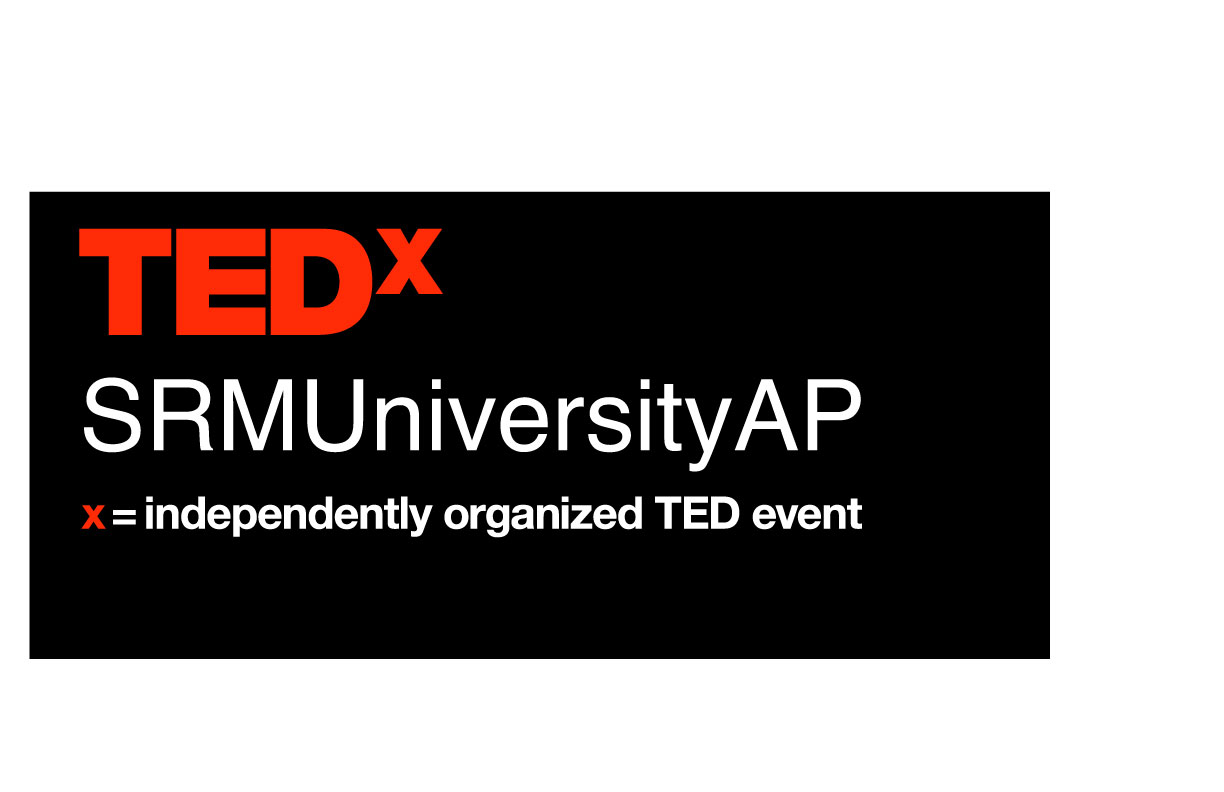 Globally, TEDx events are incredibly appealing for their cutting-edge and progressive ideas from the speakers. TEDx carefully curates, magnifies, and develops these ideas, that can genuinely change the world for the better. SRM University AP now joins the TEDx community to take it to an entirely new level.
Globally, TEDx events are incredibly appealing for their cutting-edge and progressive ideas from the speakers. TEDx carefully curates, magnifies, and develops these ideas, that can genuinely change the world for the better. SRM University AP now joins the TEDx community to take it to an entirely new level.
A TEDx event is a local gathering where live TED-like talks and performances are shared with the community. TEDx events are thoroughly planned and coordinated independently, on a community-by-community basis. The content and design of each TEDx event is unique and developed independently, but all of them are expected to abide by the standards and rules set by TED. This event can be extremely advantageous to the university not only in terms of the knowledge that the talks bring but because of the ambience, optics & publicity that it provides.
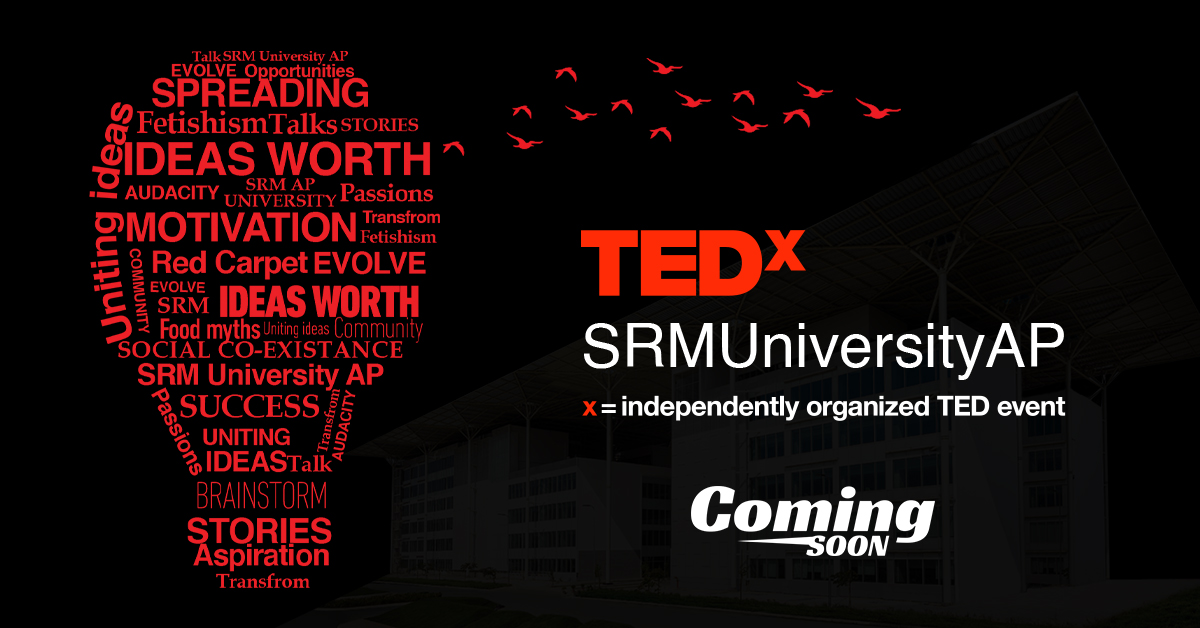
“We’ve been working towards acquiring the license for months, and we are pleased to inform that our application for TEDxSRMUniversityAP has finally been approved! The application process involved presenting our ideas and defending the questions by the representatives at TED. Overall, it was a good experience,” said Dr Bhanukiran, Assistant Professor in the Department of Computer Science and Engineering. This license permits SRM University- AP to organise one TEDx event within the next 12 months which means it is valid till May 12, 2021, and allows an attendee limit up to 100.
SRM University- AP is now setting up a dedicated website for the event where all the information will soon be announced. The students, staff and faculty are all thrilled to facilitate the event. The TEDx team will meet soon to discuss and finalise the details of the event.
- Published in Announcements, Collaborations, News
SRMAP’s contribution made SRMIST the No.1 private university in India
The very young SRM University-AP is already creating marvels by scaling new heights as a multidisciplinary research university. The 3-year-old university has published six very impactful research papers in a year in Nature Indexed journals. The notable research work helped significantly its sister aka principal institution SRM Institution of Science and Technology acquiring the rank of No.1 private university in India and 21 among Indian universities by the Nature Index 2020. The ranking was done based on Nature Index data from January 1st 2019 to December 31st 2019.
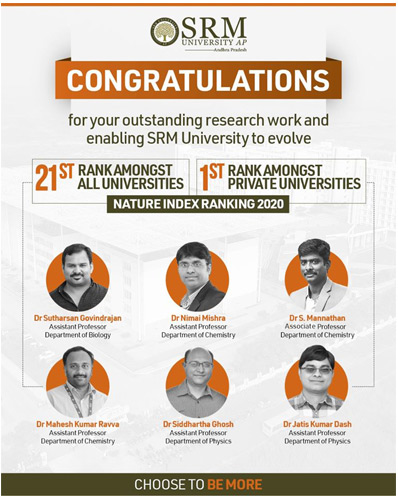
The Nature Index provides a perspective on high –quality research on the basis of published articles. The Nature Index provides a close to real-time proxy of high-quality research output and collaboration.
Nineteen research articles were published by the faculty members of SRMIST and its sister institutes between April 1st 2019 and March 31st 2020. These articles were compiled into a database by Nature Research to create the Nature Index rankings. Out of these nineteen articles, twelve were published by the Faculty Members of SRMIST, KTR Campus. One article was published by a faculty member of SRM University – Sikkim. The rest of the six articles were published by faculty members of SRM University- AP, Andhra Pradesh. Dr Sutharsan Govindrajan, Department of Biological Sciences; Dr Nimai Mishra, Dr S. Mannathan, Dr Mahesh Kumar Ravva, Department of Chemistry; Dr Siddhartha Ghosh and Dr Jatis Kumar Dash, Department of Physics played a pivotal role in achieving the honour for SRM University-AP. It is remarkable that SRM-AP, even in its budding stage, has contributed to around one third of the Nature Index score.
Dr Sutharsan’s paper, “A bacteriophage nucleus-like compartment shields DNA from CRISPR nucleases”, published in Nature, involves the discovery of novel strategies used by bacteriophages (viruses that kill bacteria) to overcome the bacterial CRISPR-Cas system, which are molecular scissors that are programmed to cut DNA. His findings have massive implications on the society as it has the ability to reshape the boundaries of the Phage-therapy in curing diseases.
Dr Mishra has published a paper titled “Broadband Defects Emission and Enhanced Ligand Raman Scattering in 0D Cs3Bi2I9 Colloidal Nanocrystals”. It is about excitonic 0D and 2D lead-halide perovskites that have been recently developed and investigated as new materials for light generation. In this work, a broadband (>1 eV) emission from newly synthesised 0D lead-free colloidal Cs3Bi2I9 nanocrystals (NCs) is reported. Remarkably, evidence of enhanced Raman scattering from the ligands is observed when attached to the NCs surface, an effect that is preliminarily attributed to strong exciton-ligands electronic coupling in these systems. Such interesting properties can be extremely appealing for a new class of low-cost materials suitable for solid-state lightning and sensing applications.
Dr Mannathan’s research article, “Palladium/Copper-Catalyzed Denitrogenative Alkylidenation and ortho-Alkynylation Reaction of 1,2,3-Benzotriazin-4(3H)-ones”, describes an environmentally friendly strategy to access various functionalised isoindolinones and 3-(imino)isobenzofuranones, which are important backbone in many natural products and biological active compounds. These reactions were enabled by an interesting Pd/Cu-cocatalyzed denitrogenative tandem alkynylation/cyclisation sequence. The strategy was also successfully employed to synthesise (Z)-3-benzylideneisobenzofuran-1(3H)-one derivatives in good to high yields.
Dr Mahesh’s paper is named “Harnessing Autoxidation of Aldehydes: In Situ Iodoarene Catalyzed Synthesis of Substituted 1,3,4-Oxadiazole, in the Presence of Molecular Oxygen”. In this study, a new methodology has been developed for the synthesis of substituted 1,3,4-oxadiazoles, which are essential pharmaceutical ingredients. We have modelled the reactivity of reactants, reactive intermediates, and products using computational protocols. Results obtained from these computational protocols are used to predict the reaction pathways and gain insights on the stability of products.
Dr Ghosh published “Direct Growth of Wafer-Scale, Transparent, p-Type Reduced-Graphene-Oxide-like Thin Films by Pulsed Laser Deposition”. His study reveals that reduced graphene oxide (rGO) is a derivative of widely used 2-D material called Graphene. Along with Graphene itself, rGO is also an exciting material for research communities due to its potential application in gas sensing, water purification and desalination, energy storage and flexible electronics. All these novel applications require a reproducible & scalable growth process for rGO thin films. In their research article, they have reported a single-step bottom-up growth process of reduced Graphene Oxide using a thin-film growth technique called Pulsed Laser Deposition (PLD). Utilising the state-of-the-art laser beam scanning technology, they have been able to grow 4-inch wafer-scale rGO thin-films with ultra-smooth surfaces and unparallel thickness uniformity. Moreover, they have found that these rGO thin-films are transparent and conducting with some of the lowest extinction coefficients and refractive index values. They believe this novel growth process combined with the exotic opto-electronic properties (of rGO) will enable us to directly grow and integrate rGO thin-films on Si & metal-oxide based hetero-structures and will potentially move forward the rapid deployment of rGO for various applications.
Dr Dash’s article is titled as “Thickness-Insensitive Properties of α-MoO3 Nanosheets by Weak Interlayer Coupling”. Extensive use of portable electronic products and the rapidly growing commercial markets in smart electric appliances have created a seemingly high demand for flexible, wearable and foldable high-performance photoelectric devices. In the search for new materials to meet these criteria, one promising solution may be the two-dimensional (2D) layered heterostructures, assembled by stacking different conventional 2D materials in hetero-layered architectures. Alpha (α) phase-molybdenum trioxide (MoO3) is one of the promising 2D oxides, which is a chemically stable semiconductor with a high dielectric constant. The high resistive tunnelling and dielectric constant also shows that α- MoO3 nanosheet can be used as a promising dielectric or tunnel barrier. Therefore, the epitaxially grown MoO3 can be an important candidate in the field of 2D materials-based nanoelectronics. α- MoO3 layers can also be used as dielectrics for supercapacitors, and channel materials for high power electronics. Besides these, heterojunctions like Graphene-α- MoO3 and α- MoO3 /MoS2 has its applications in Field effect transistors (FETs), battery cathode materials, and various sensors.
The Nature Index is a database of author affiliations and institutional relationships. The index tracks contributions to research articles published in 82 high-quality natural science journals, chosen by an independent group of researchers. This Index provides absolute and fractional counts of article publication at the institutional and national level and, as such, is an indicator of global high-quality research output and collaboration.
- Published in News
SRM AP’s collaboration with IIRS-ISRO enable students to avail outreach programmes
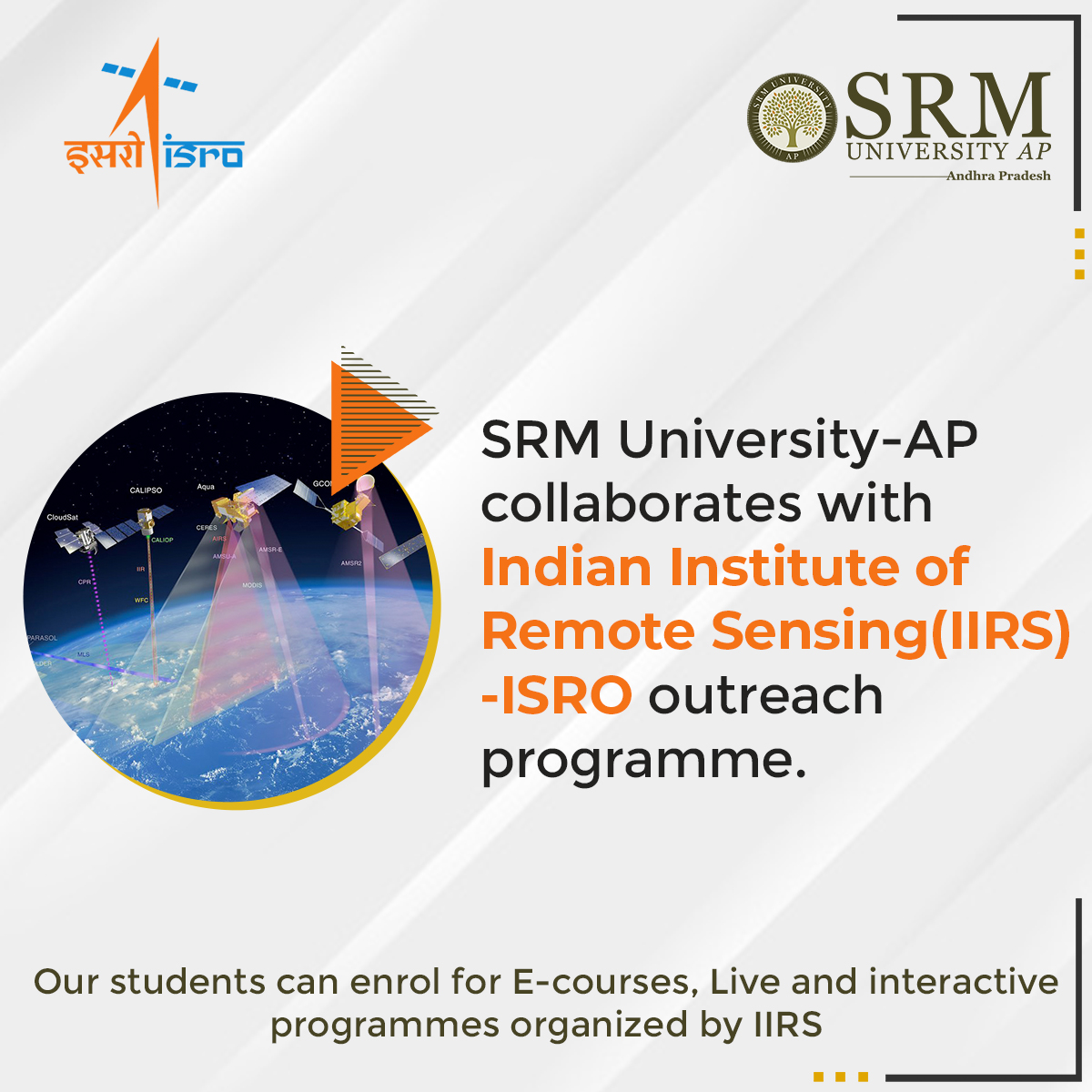 SRM University AP-Andhra Pradesh has collaborated with the Indian Institute of Remote Sensing (IIRS) -Indian Space Research Organization (ISRO)’s outreach programme. SRM AP is included among the top-notch universities of India that can benefit from the incomparable Outreach Programme. As part of the association, the students of SRM AP will have the excellent opportunity to register for annual courses as well as live and interactive programmes being organized by IIRS. In addition, E-learning courses for a short span of 3-4 Month duration will be accessible by the students.
SRM University AP-Andhra Pradesh has collaborated with the Indian Institute of Remote Sensing (IIRS) -Indian Space Research Organization (ISRO)’s outreach programme. SRM AP is included among the top-notch universities of India that can benefit from the incomparable Outreach Programme. As part of the association, the students of SRM AP will have the excellent opportunity to register for annual courses as well as live and interactive programmes being organized by IIRS. In addition, E-learning courses for a short span of 3-4 Month duration will be accessible by the students.
 Please view the annual course calendar 2020 here
Please view the annual course calendar 2020 here
ISRO is among the best-performing government organizations in India which has mastered the sophisticated space technologies, along with receiving applauds globally. The organization’s brilliant research and development, and applications for societal benefits like tele-education, telemedicine, disaster management, agriculture, fisheries and infrastructure development, ensures its dominance in the world. ISRO has launched the IIRS Outreach Programme to strengthen academia in terms of Space Technology & its applications through online learning platforms.
The popularity of remote sensing, geographical information system, global navigation satellite system and associated geospatial technologies in the current times require trained manpower in the domain. The students of SRM AP are encouraged to proactively avail the interactive distance learning courses and webinars that will enable the students to achieve their career goals in aerospace and geospatial technologies and make a mark globally.
Know more about Registration: https://elearning.iirs.gov.in/outreach.php
Register here: https://elearning.iirs.gov.in/Registration.php
 Click here to know more about the registration procedure
Click here to know more about the registration procedure
For additional information or clarification, please contact programme coordinator:
Prof. Siva Sankar Yellampalli
Professor of Practice & Head of the Department,
Department of Electronics and Communication Engineering
E-mail: sivasankar.y@srmap.edu.in
Contact No: 7760280268
“Contemporary Literary Review India” publishes “The War”: A Poetic Representation of the Eternal Struggle for Existence
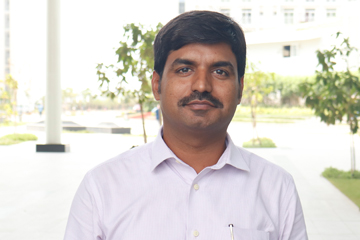 “He shines Hot, I absorb the heat intense;
“He shines Hot, I absorb the heat intense;
He comes down with all blaze, I disappear slow;
He boasts his victory Grand, roars High;
The world surrenders to his Will and Grace”
Dr Ram Kulesh Thakur’s poem titled ‘The War’ is a metaphoric poetic tale that depicts the strife and struggle of the human race against the challenges that question their identity and existence. The poem has been recently published in the reputed journal “Contemporary Literary Review India” in its May 2020 edition where it was avidly congratulated by the readers.
The poem ‘The War’ reflects the continuous state of turmoil that any sensible person faces each second, each day. One has to be mighty enough to deal with all the impediments and strive to better one’s life; not only for the personal benefit but at the same time for the entire Humanity. In the poem, the speaker, a tiny water droplet, dares to war against the imperious and despotic Sun and in the attempt loses its identity itself. However, the droplet does not lose hope. It makes an attempt to survive and joins others to form a cloud. The Cloud, as known, can fight gloriously and save the world from the intense heat of the Sun. Thus, the water droplet stands victorious. The poem reminds us of how determination and wisdom can eradicate all hindrances that lie in our paths. The poem teaches and inspires one to fight for good and never to give up until one succeeds.
Dr Thakur belongs to the school of thought that advocates “Art for Life’s Sake”; and therefore, he celebrates ‘life’ and illustrates his ‘day to day experiences’ in his creative write-ups. Whenever Dr Thakur can manage some time between his teaching duties as an Assistant Professor at the Department of English, he indulges in publishing both ‘Academic’ and ‘Creative’ write-ups in noted Journals and Newsletters such as Indian Book Chronicle, Poetcrit, Contemporary Literary Review India, Akshara. His natural inclination is towards the ‘Academic’ writing. Presently, two of his essays are under review to find its place in the most reputed international magazine ‘World Literature Today’.
Dr Thakur finds his inspirations in every author he reads, though celebrated authors Ruskin Bond, Haruki Murakami, Shashi Tharoor, Gita Hariharan, and Paulo Coelho hold a special place in his heart.
Dr Thakur has been working on two major and a few minor projects simultaneously. His latest creations, “Teaching English to Non-English”, a compilation of essays celebrating his personal ESL/EFL Classroom experiences; and “Shadow under the Shade”, a novella with 12 chapters, are expected to hit the bookstores by January 2021.
The ‘WAR’
– Dr Ram Kulesh Thakur
The arrogant Sun mocks my little stature,
Challenges my weak and fragile form;
I stand firm to show the worth of a pure Soul,
Prepare for the tussle Great;
He shines Hot, I absorb the heat intense;
He comes down with all blaze, I disappear slow;
He boasts his victory Grand, roars High;
The world surrenders to his Will and Grace;
At once, it grows dark, the birds chirp;
The delight to each floats on air,
They look to the Savior above:
To see a CLOUD, that was a water-drop.

